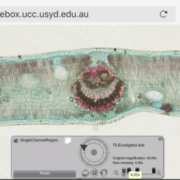
BotanyOnline: Shared learning-support resources for improving Botanical Literacy
0 Comments
/
Guest post by Rosanne Quinelle, an Associate Professor in the School of Life and Environmental Science at the University of Sydney, Australia.
Proficiency in any discipline requires exposure to both breadth and depth, where “breadth” is akin to acquiring the vocabulary and “depth” is akin…
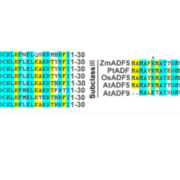
Loose-Knit Family: Tracing the Evolution of Actin Depolymerizing Factors that Sever or Join the Actin Cytoskeleton
IN BRIEF by Jennifer Lockhart jlockhart@aspb.org
The interior of a plant cell is supported by the actin cytoskeleton, a complex network of yarn-like fibers whose form changes as the cell develops, grows, and divides. Actin fibers readily come apart (sever) and join back together, depending on the…
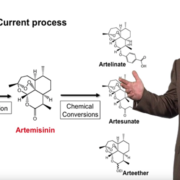
Jay Keasling. Engineering Microbes to Solve Global Challenges
Filmed for iBiology 2016
Talk Overview
Dr. Jay Keasling discusses the promise of biological systems to create carbon-neutral products for a range of applications, including fuels, chemicals and drugs. Keasling discusses the application of these principles to the development of a microbial platform…
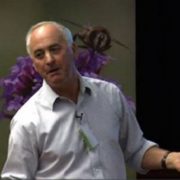
Alistair Fritter. People, plants and planet
Filmed at Gatsby Summer School, 2011
Abstract: Population issues are receiving renewed attention from both scientists and policy-makers and well-founded predictions of likely global population growth have given new urgency to concerns about food security and loss of ecosystem services. Plant science…
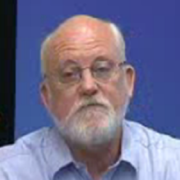
Robert Zeigler. Importance of rice science and world food security
Filmed at the 2011 Gatsby Plant Summer School
Abstract: Rice is the most important food crop of the developing world and the staple food of more than half of the world’s population, many of whom are also extremely vulnerable to high rice prices. In developing countries alone, more than 3.3 billion…

Ottoline Leyser. Thinking like a vegetable: How plants decide what to do
Filmed at Gatsby Summer School 2015
Professor Ottoline Leyser, Director of the Sainsbury Laboratory at the University of Cambridge, speaking at the Gatsby Plant Science Summer School 2015.
http://sms.cam.ac.uk/media/2115987
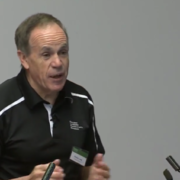
Steve Long: Food, Feed and Fuel from Crops under Global Atmospheric Change. Could we have it all in 2030?
Filmed at the Gatsby Summer School, Leeds University, 2014
Abstract
Demand for our major crops is expected to rise 30% by 2030, while we look increasingly to croplands for energy as well as food and feed. This is at a time when the rate of increase in yield seen over the past 60 years is stagnating…

Giles Oldroyd. Engineering the nitrogen symbiosis for smallholder farmers in Africa
Filmed at the Gatsby Summer School, University of Cambridge 2015
Western agricultural systems are reliant on the application of inorganic nitrogen fertilisers to greatly enhance yield. However, production and application of nitrogen fertilisers account for a significant proportion of fossil fuel usage…

Beverley Glover. Flowering plant diversity: development, function and evolution
Filmed at the Gatby Summer School, University of York, 2013
http://www.tree.leeds.ac.uk/tree.2.0/view_lecture.php?permalink=MTA2Nw
Abstract: The enormous species diversity of the flowering plants has puzzled evolutionary biologists since Darwin’s day. The rapid radiation of the flowering plants…

